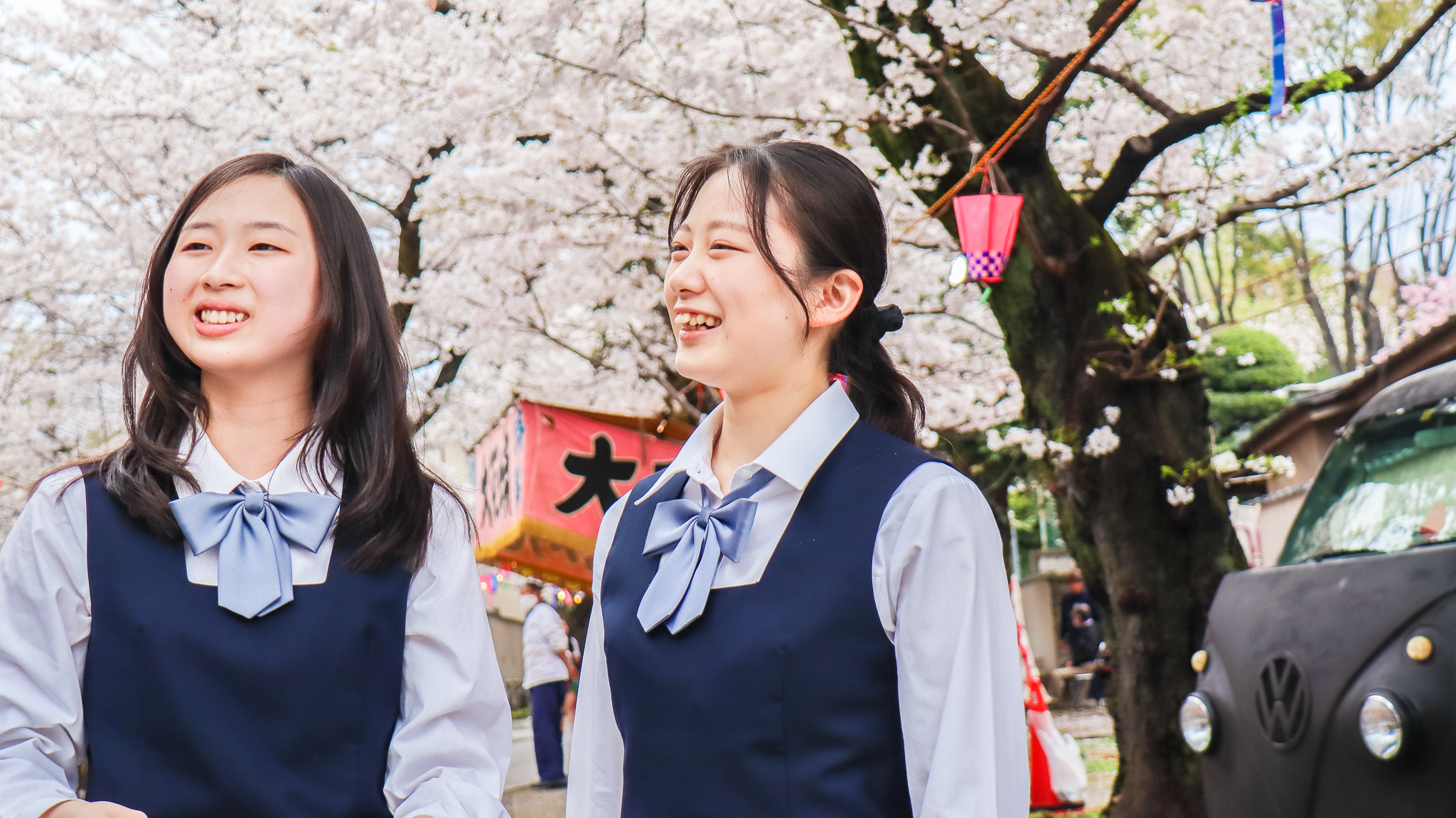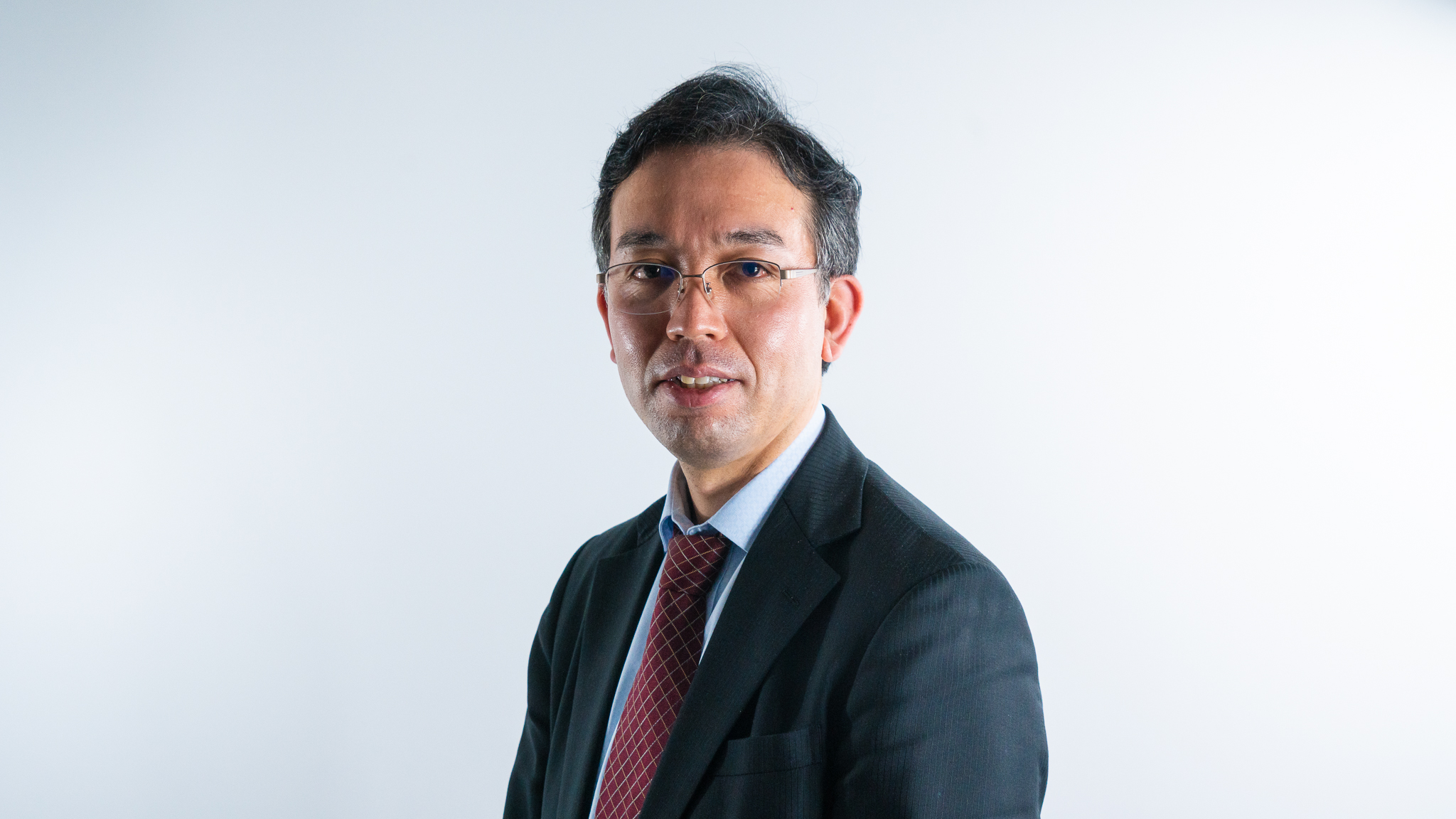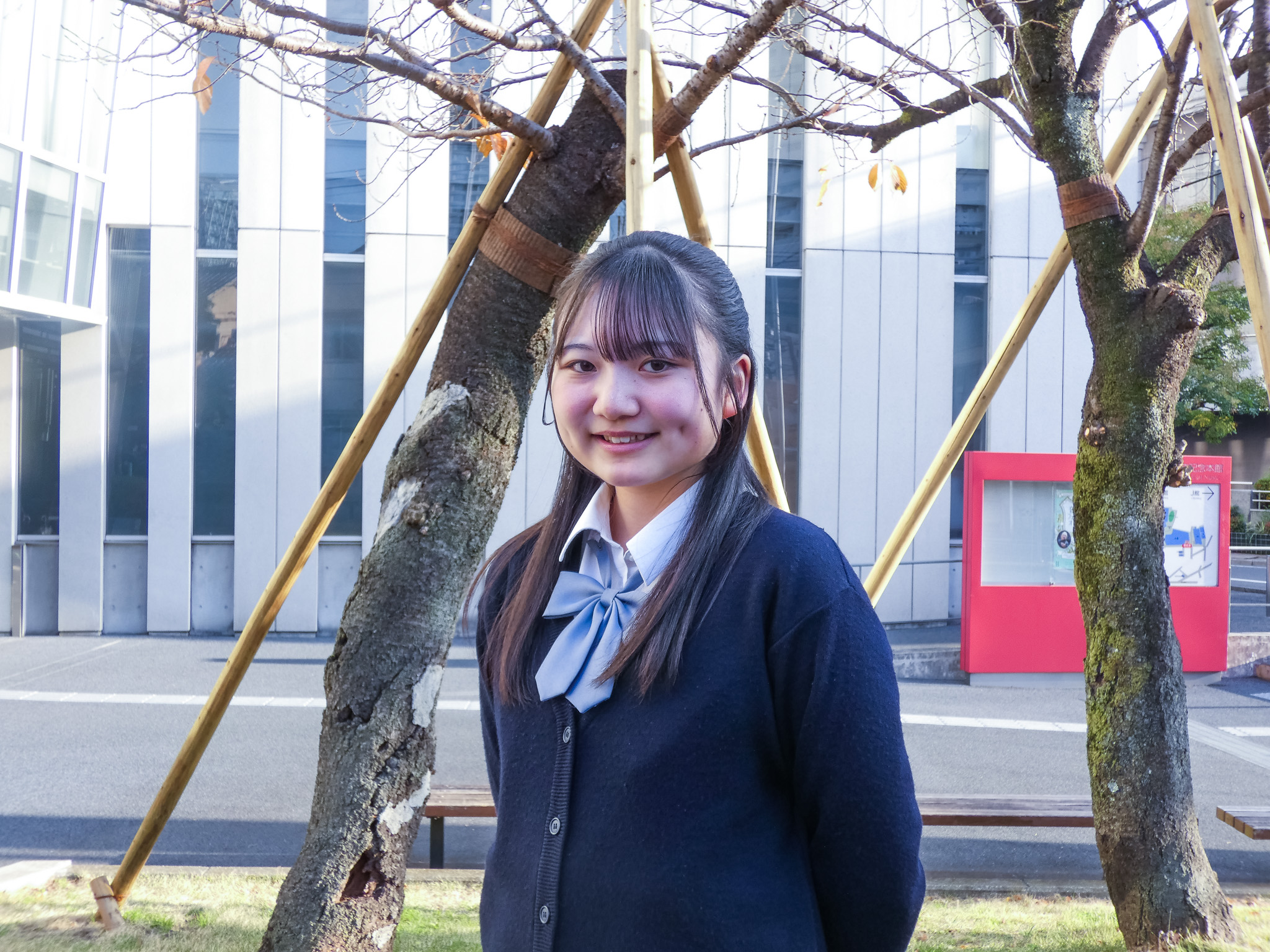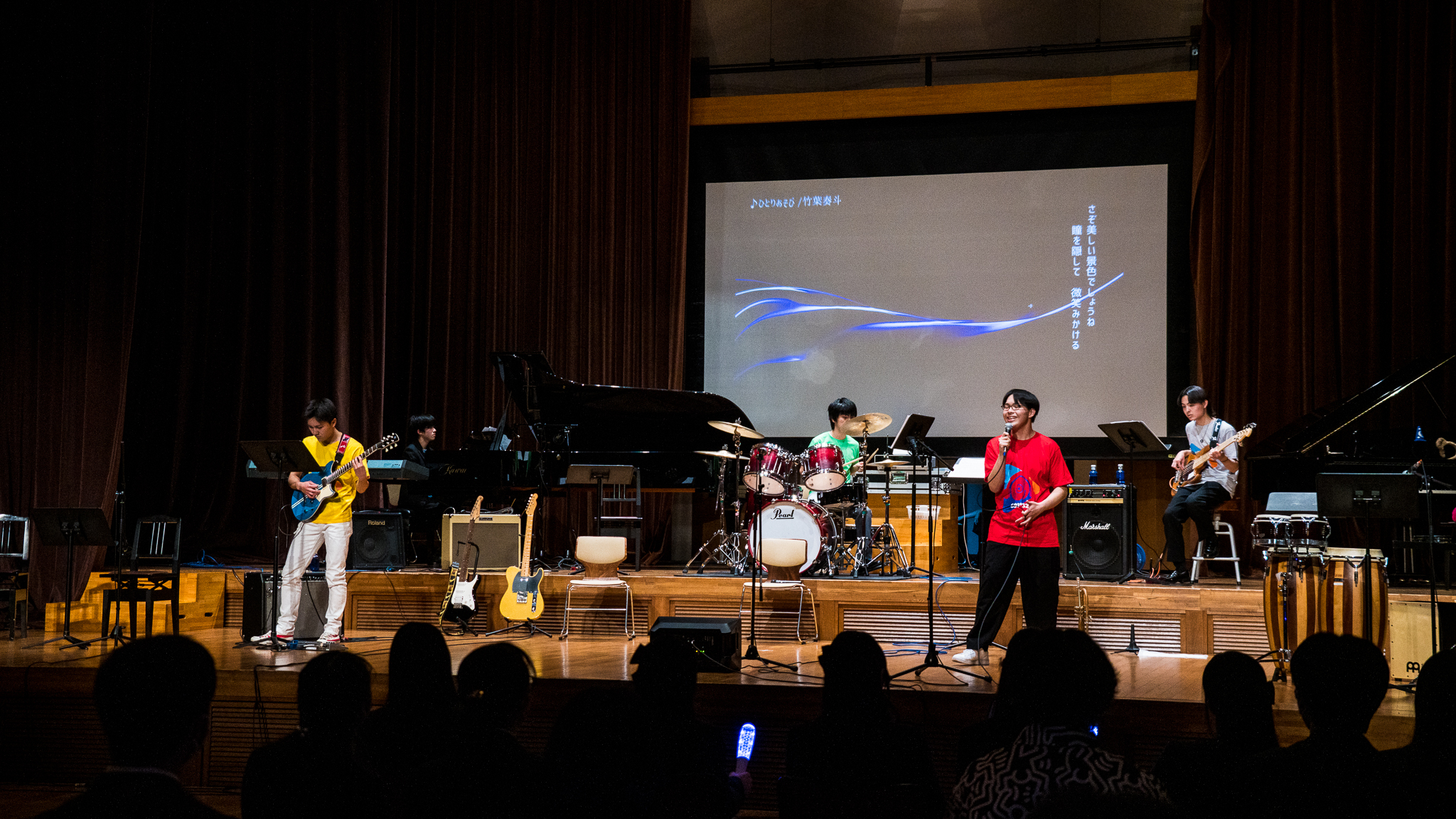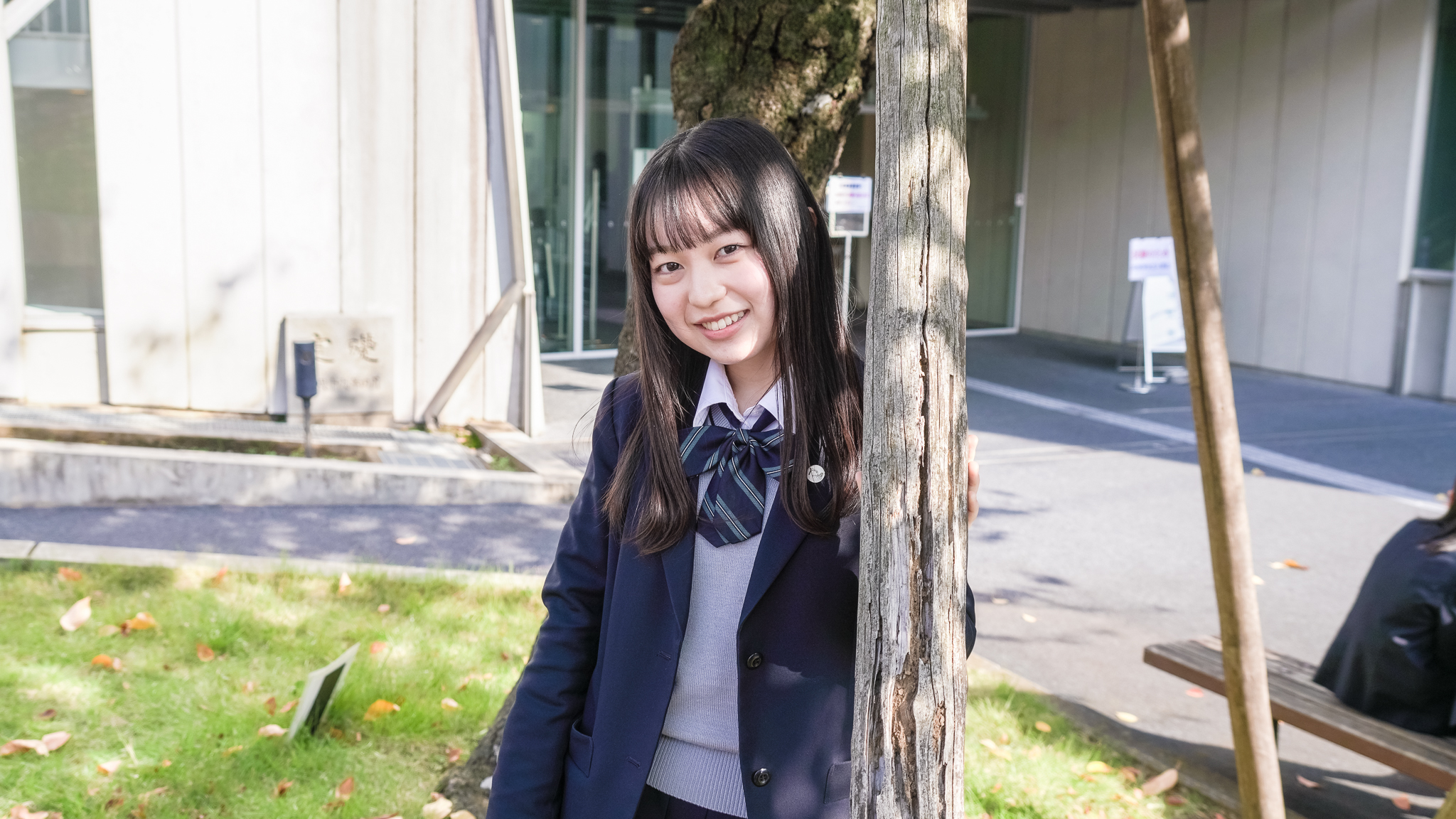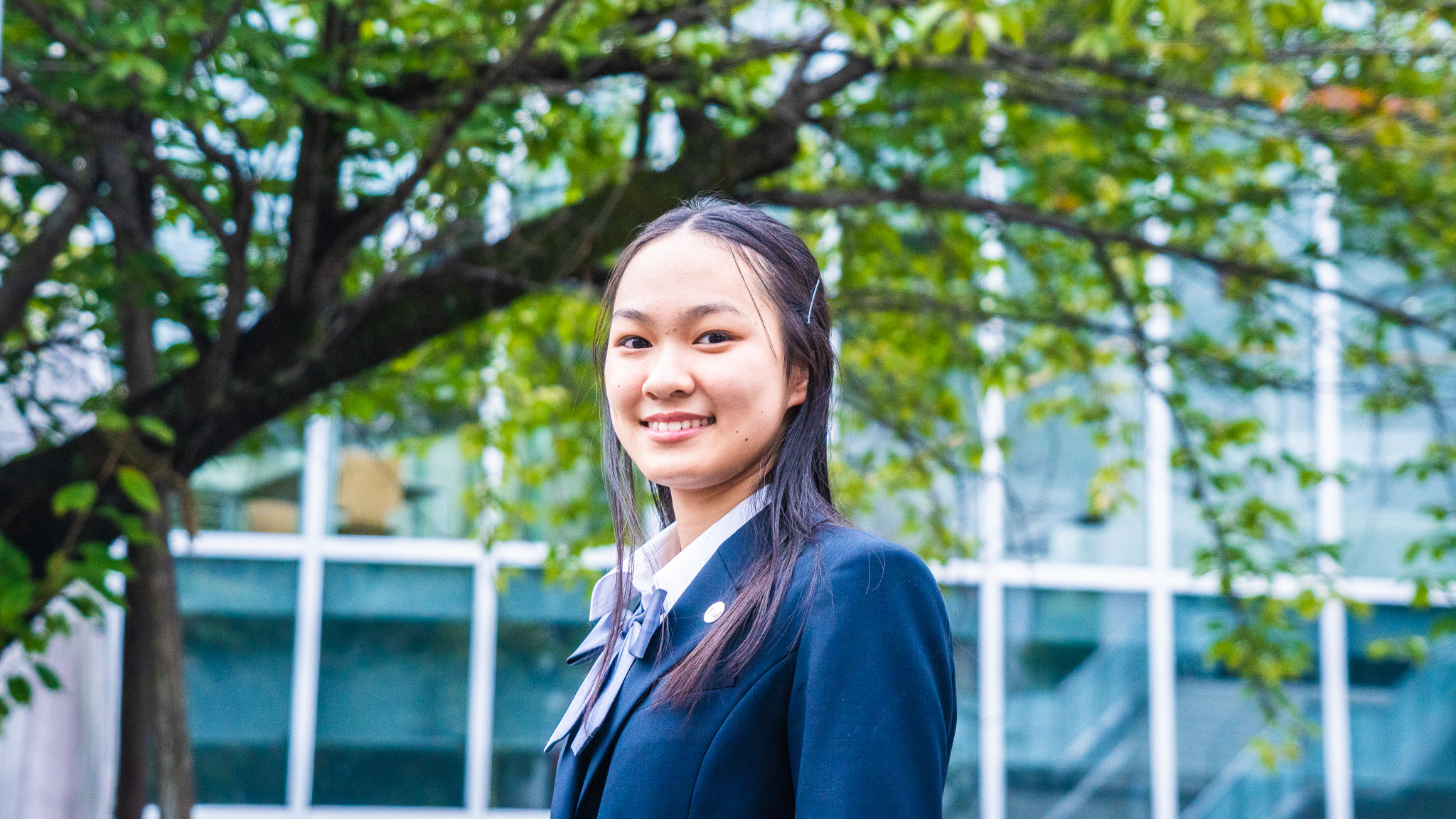What is the Distinguished Service Award?
At the "Farewell Party for Third-Year Students" hosted by the Student Council in March, the "Merit Award" is presented every year to the third-year volunteer group that the first- and second-year Student Council officers thought was most active at the Student Council-sponsored concerts and cultural festivals. This year, two groups received the award: "691*324," a six-member boys' jazz band, and "Taiyaki," a two-member girls' piano ensemble group. We would like to introduce these two groups to let everyone know what kind of volunteer activities are taking place at our school, which has no club activities.
As the first part of our special feature on merit award-winning volunteer groups, we interviewed two members of "Taiyaki", Sachi Akutsu (Akutsu Sachi, hereafter "Sachi") and Shiho Sato (Satou Shiho, hereafter "Fumiho"). We hope you will enjoy their interesting story about how they sometimes went home together after practice to eat taiyaki.
Reflections on the Awards and Activities."
So, without further ado, please tell us how you felt when you received the "Meritorious Service Award.
(Shiho) I was surprised. I didn't think I would receive it.
(Sachi) I was surprised, too. The power of the men's team was too strong (laughs). (laughs) But I was happy.
As a volunteer group named "Taiyaki," you two performed in the "Cultural Festival Concert" and the "Welcome Concert for New Students" (hereinafter referred to as "New Year's Welcome") organized by the student council in your second and third years, and you also performed in many other concerts organized by the school.
(Sachi) At the end of my first year, I was selected for the piano ensemble class and performed in the "Piano Ensemble Concert," and I continued to take the class during my second and third years and performed in every "Piano Ensemble Concert.
(Shiho) I was also able to perform in the "Chamber Music Concert" in my 2nd and 3rd year after passing the audition, and in my 3rd year, I played the accompaniment to Brahms' "Love Song" in the "Joint High School/University Concert" as a duet and also performed in the "Mimizuku Festa" held at the Ward Plaza Minami Ikebukuro. I was also able to perform in front of junior high school students during the winter school orientation.
What was it about the piano ensemble class in your first year that made you decide to continue playing together?
(Shiho) I invited them to play again next year. I also invited them to the New Year's Reception and the Cultural Festival.
(Sachi) I think I invited them to the chamber music concert.
(Shiho) That's right. I didn't know about the chamber music concert, but Sachi knew about it from her seniors.
(Sachi) I admired a senior who was a junior when we were first-year students, and he told me about the Chamber Music Concert.
(Note: The chamber music concert when the two of us were freshmen was cancelled due to the Corona, so many people did not know about the chamber music concert.)
What was it like when the two of you were practicing?
(Shiho) In the first year, I think we were kind of arguing about our opinions (laughs). I remember one time we couldn't come to a final decision and had to go to the teacher for advice.
(Sachi) I had seriously played in a duet when I was in elementary school, and I knew before entering high school that I wanted to work hard in ensemble as well, so I was pretty vocal about it (laughs). (Laughs) Our ideals of what we wanted and what we wanted to do were so high that we practiced quite a bit and discussed it a lot.
So the two of you really deepened each other's understanding.
(Shiho) What was memorable for me in the 2nd and 3rd year was that we spent a lot of time just discussing rather than playing the piano. For example, we would say, "This phrase sounds like a bird's call," or "This phrase is inspired by the poem, so I want to play it this way. For example, "This phrase sounds like a bird's chirp," and "It's inspired by a poem, so it's a nightingale. I remember that we would look up and listen to the nightingale's call, and we would keep talking about what kind of call it was and what it was singing about.
(Sachi) To top it all off, I wrote my own story based on what we had discussed, and we read it together the whole time before the show (laughs).
That's amazing. Akutsu-san was really looking for deep love, wasn't he?
(Sachi) When you work as an ensemble, you can't get through to the other person if you solve the problem on your own, so I thought it was important to put it into words so that both of us could point our musical direction in the same direction.
That is really wonderful. By actively verbalizing your ideas, you were able to deepen your understanding of each other and your music.
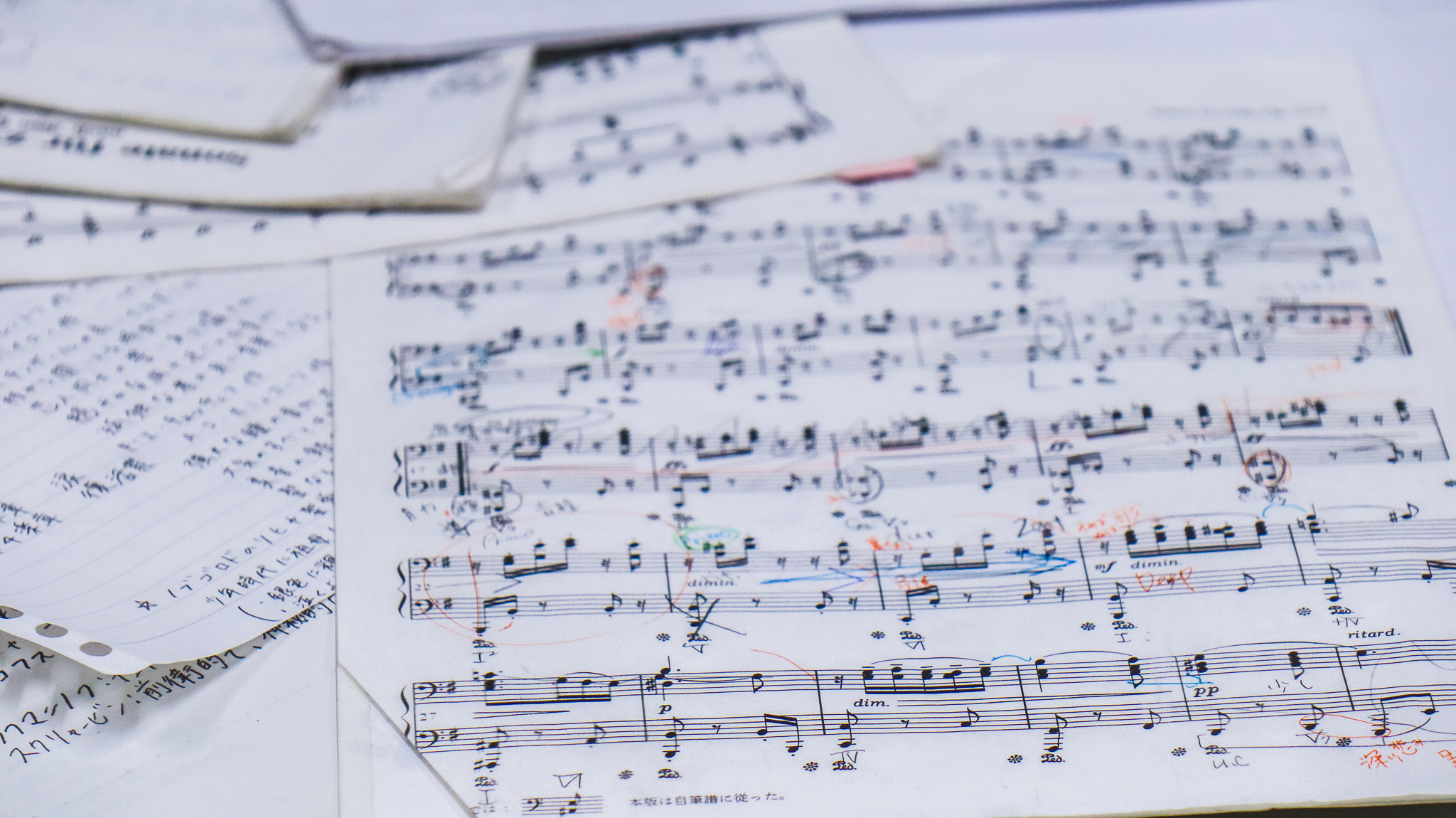
"It's just the two of us."
What do you two think of each other?
(Sachi) Fumiho is a very serious person who returns to one thing with double or triple the passion, and I don't think I could have had that rally if it weren't for him. I don't think I could have had that rally without Shiho. She is both intelligent and passionate, and that was new to me. We are slightly different types when it comes to songwriting, so I think it was thanks to her that I was able to bring out those two sides and work diligently until the very end.
(Shiho) Sachi is really amazing. Not only is she great musically, but she is also very good at teaching. Whenever I wasn't satisfied with something, she didn't just tell me what I should do, she gave me a good reason and told me that I should do it this way because this is the way to do it, or that it would work this way, until I was satisfied. He always gave me advice until I was convinced that it would work. He also had a lot of opinions that I didn't have, and he always came up with ideas that I didn't have, so I felt that he was always helping me out. He is also very good at making flyers for concerts, and he always thinks of appropriate words to say on stage. I respect him not only from a musical standpoint, but also as a person.
(Sachi) Thank you (embarrassed).
You both seem to have passion and intelligence, but do you have any differences between the two of you?
(Shiho) We are so different that it is difficult to find the same thing.
(Sachi) Indeed...
(Shiho) We share the same passion for music, but we don't always spend time together at school, nor do we go out somewhere together.
(Sachi) The only thing we had in common was our love of music. Other than that, our favorite composers and the pieces we played were completely different, and the passages we were good at and the points we focused on were also completely different. But even though we were looking at the same piece, we were looking at it from different perspectives, so I think I was able to think about the piece much more deeply than if I had done it alone.
You have been working on various songs together for a long time.
(Sachi) It wasn't that we were aiming for anything by working hard as an ensemble, but we were just working hard at what we wanted to do, and we were given many opportunities, which was a good thing for us.
(Shiho) They told me everything (laughs).
(Sachi) Also, as we went on, the points I wanted to emphasize changed; in the first year, the most important point for me was how to put the songs together, but as the year went on, I started to think about how to make the most of each individuality and what we, not others, could do.
(Shiho) We were also able to think about how to choose songs.
(Shiho) Sachi chose songs that only we can do, or rather, songs that are unique to us, and I think we are now able to perform in our own way.
How did you choose the songs?
(Sachi) Basically, I chose the songs. I listened to so many 2-piano pieces from all over the world (laugh), but when choosing songs, I was able to think not about what I wanted to play, but about whether this song would be more effective if I played it with Shiho.
(Shiho) He always chose songs that he thought were really good, but he didn't always choose songs that were better for me. He chose songs that really suited us both, and he chose songs that I wouldn't normally choose either.)
(Laughs) - Were there any difficulties in the activities of the two of you?
(Shiho) We did a little too much in the fall of our third year.
(Sachi) I thought that ensembles are difficult in terms of quantity. I think that the more you do it, the better you get, but you have to discuss it during practice, and you can't be easy on yourself because you are not alone, so I felt that it was difficult to combine soloing with spending too much time and energy.
(Shiho) But through ensemble activities, I learned the importance of listening to all the sounds, both mine and Sachi's, and being attentive to all the sounds, so I was able to make use of this when working on my solo pieces.
What was the most impressive thing about your three years of piano ensemble classes?
(Sachi) I learned that I could play more exaggeratedly than I thought I could. I learned that the bigger the form, the more solidly you have to play it to make it sound better than if you had four hands and only one bass hand, rather than two hands in a solo. Also, it wasn't a piano ensemble class, but we were selected for a special art course by Mr. Miyuji Kaneko, and he gave us a few lessons, and he told us that we should play "solo to solo". Until then, I had been trying to put together the pieces by subtracting a little bit of myself, or rather, by taking a negative direction, but I was able to learn that I could maintain balance in the piece if I added something different to myself.
(Shiho) I was most impressed by the hours of time we spent discussing one song together during practice. We often had to write reports in class, and Sachi did a great job at the beginning in terms of deepening our understanding of the songs. Influenced by that, I also became very conscious of what kind of scene and feelings this song was composed for.
(Sachi) The piano ensemble concert at the end of the performance left the biggest impression on me. Up until now, we had been playing along with each other, wanting to play along with the piece, but for the last performance, I wanted to enjoy the moment, thinking that this was the last time, and I played so as not to miss a single note. When I received the applause at the end, I was filled with gratitude for the teachers who were in front of me and for Shiho, who was on the same stage with me.
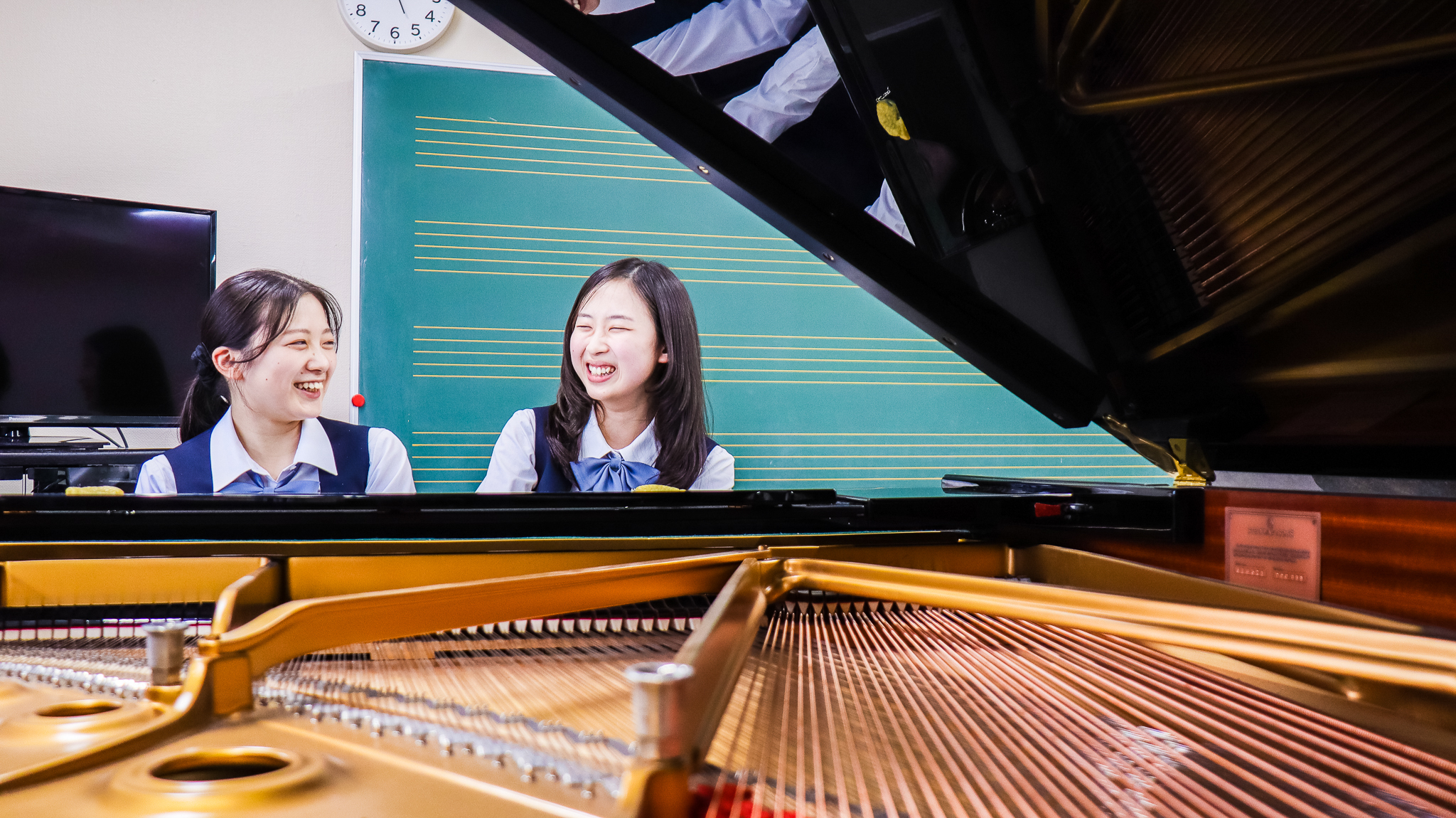
For the future and for my juniors."
What do you plan to do after you go to college?
(Sachi) I have a strong feeling that I have done my bit, so I would like to shift to a solo career for now. I hope to make the most of my various experiences and move forward.
(Shiho) I am of the school of thought that I would like to play in an ensemble with Sachi (laughs), but I heard that there will be no piano ensemble class for first-year university students, so I would like to concentrate on my solo career for now.
The two of you were not always together in high school; you each had your own friends and were active in ensemble activities other than "Taiyaki. I think they brought back what they learned there and made "Taiyaki" even more powerful. I think that if we make new friends in college, learn new things, and then decide to play together again in our senior year or so of college, we might have a different appeal. Finally, do you have any message for younger students?
(Shiho) Do what you want to do!
(Sachi) If you go all out in pursuing what you want to do, it may lead to something, and even if it doesn't lead to something, there will always be something left in you. That was the case with us, so I hope you will have that kind of feeling.
(Shiho) I want you to try anything.
(Sachi) Don't be afraid of failure.
(Shiho) I want to say that to myself from now on (laughs).
So that was your message to your juniors and to your future selves. Thank you very much for today.
(Sachi & Shiho) Thank you very much!
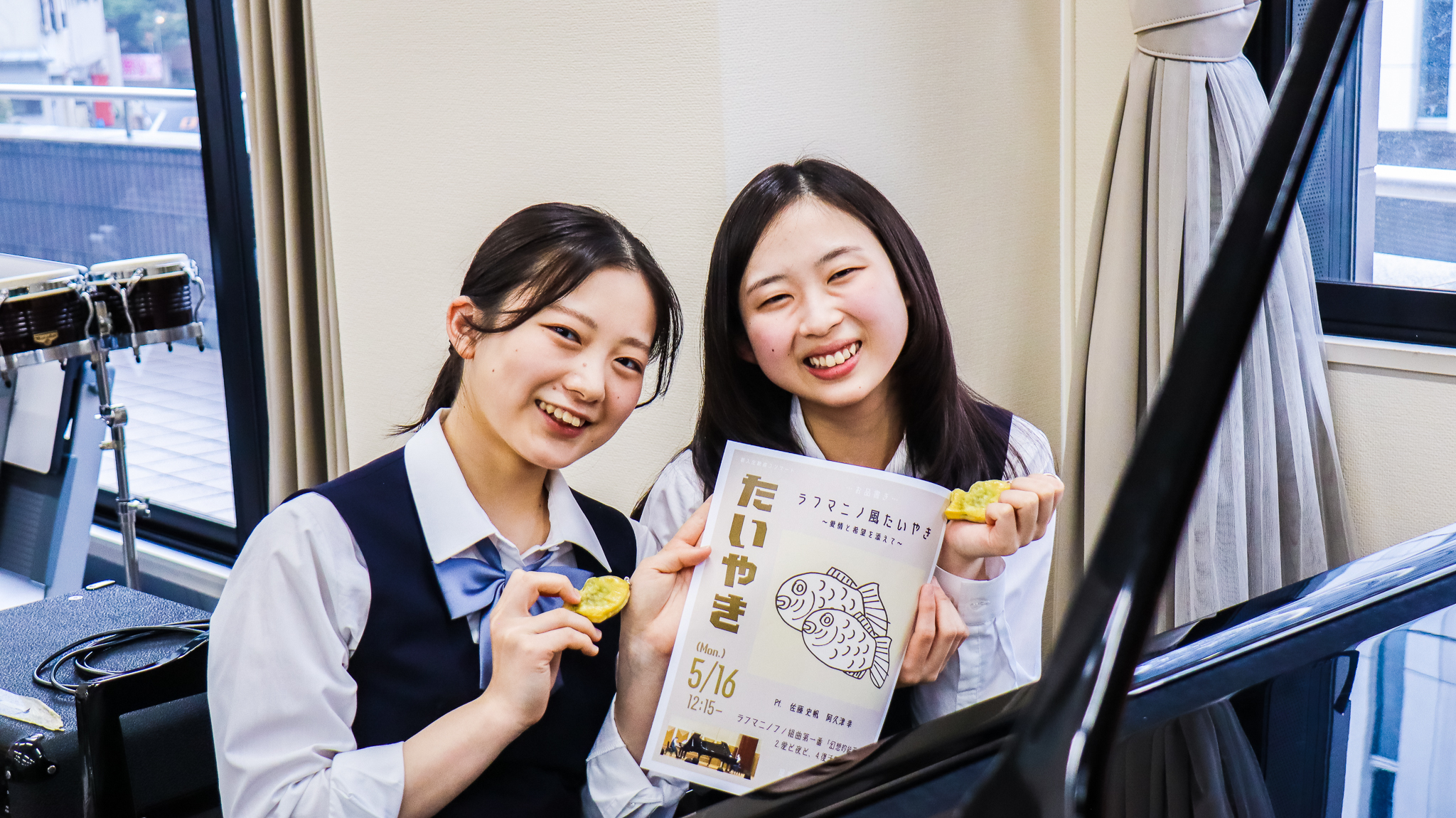
Performance of "Taiyaki" - 2022 Chamber Music Concert Edition
Please enjoy the piece with the poem that appeared in the interview, S. Rachmaninoff / Suite No.1 "Fantastic Pictures" op.5, 2. Night and Love and 4. Easter.
